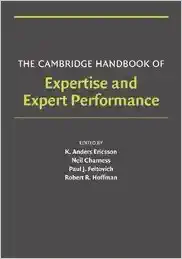HOW TO DEAL WITH SOME RqAs, SOMETIMES
Michael Sean Quinn*
Requests for Admissions (“RqAs”) are a written discovery device in all jurisdictions. They have a number of uses. Here are some reflections. It is not a complete account of anything. It involves only suggestions, and the suggestions are set forth in fragments.
First, there is no established limit on how many can be submitted. If they are all reasonably clear, relevant, useful and not simply a form of justice avoidance, the party to which they are submitted will likely have to answer them.
It is not the case, however, that if 6 RqAs out of 100 are unclear, vague, or jumbled, then the party receiving them can avoid answering all of them. Answering counsel’s goal should be to object to and then refuse to answer 6, or a few more.
Second, it is probably a good idea for asking counsel to not multiply RqAs beyond the reasonable, where reasonableness depends upon topic and context. If your having trouble at what reasonable might mean here, try this maxim: Don’t multiply poses of RqAs beyond the necessary. (I suggest substituting necessary for reasonable in this situation because, if you are having trouble measuring what’s reasonable, then you are already tempted to go too far.)
Third, there are strict time schedules. If a party does not answer by a date specified in the discovery rules, or by agreement, the answer “Admitted” will automatically entered. It can be difficult to undo this. Still if L screws up s/he can always seen relief, first by asking opposing counsel, second by begging opposing counsel, and third by motion. (L must remember that kindness breeds kindness in return.)
Fourth, a multiplicity of RqAs can be used to bring a case into focus. They do this better than interrogatories because there no (or much less) wiggle-room in the answers.
Fifth, it is illegitimate for the party posing the RqAs to try and specify that that the answer must be either “Admit” or “Deny.” There is such a thing as “I don’t know.” There is “I don’t remember.”** And there is what I shall call an “Exclusionary Objection.” Here’s one: “This request is so unclear with respect to the concept of X which is central to it that I can’t really be sure what to say.” Don’t over do this. Do it only when it’s true. (**Keep in mind that “I don’t remember” is a species of “I don’t know.” The trouble is that “I don’t remember” implies that you did know once.)
The asking party could seek a court order, but it is unlikely to get it, if the ExcObj is well taken. Consider guessing at what the asking counsel was driving at; specify what the RqA should have been–or might have been–and respond to it.
Another way to deal with this is to notify the other side of your problem with the clarity of the RqA and suggest that it be “amended.” You might even volunteer to respond to your suggested substitute. You could even volunteer to do it straightaway.
Sixth, counsel seeking admissions should try to avoid double negative RqAs. Here is an example: “Admit or Deny that you did not know the truth of proposition p on the morning of November 23rd.” Responding counsel needs to watch out for this sort of thing. Treachery in posing RqAs is not unheard of. If something needs to be said, answer in a sentence and not just one word.
The asking party may object “Non-responsive,” but that is unlikely, and it is unlikely that a court will raise hell about it, so long as it is done infrequently and done reasonably when done at all.
Seventh, “asking counsel” should consider making each RqA as short as possible. It is almost never a good deal to as a conjunctive RqA, such as “Admit or Deny the proposition p and q.” This will generate unnecessary denials. Split conjunctive RqAs into two and propose (or ask) them separately–as distinct RqAs.
Eighth, don’t hesitate to seek closely related information several times, if you need to know but don’t already know: “Admit or deny the event happened on Monday.” + “Admit or deny that the event happened on Tuesday.” And so forth. Don’t over do it. You are in the business of seeking justice, not the business of being an asshole.
Ninth, some counsel asking RqAs always formulate them this way: “Admit or Deny the following proposition: p.” I don’t do it what way. I simply entitle the query “Request for Admission #___,” and then write in p. I used to put “Admit” underneath that to the left and “Deny” off to the right and invite the receiver to circle the correct one. Nobody liked it, and nobody did it. So I quit.
Ten, if you are dealing with a difficult, devious lawyer. Be very careful as to how the RqAs are answered, and keep notes as to why a potentially controversial answer is given The appropriate witness may need to be reminded of how a particular RqA was answered.
*Michael Sean Quinn, Ph.D., J.D.
The Law Firm of Michael Sean Quinn
1300 West Lynn Street, Suite 208
Austin, Texas 78703
(512) 296-2594
(512) 344-9466 – Fax





Recent Comments